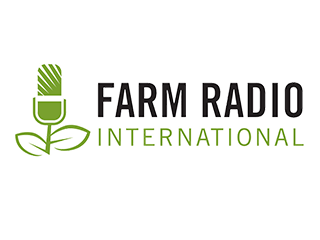Helping farmers talk back to the radio in Tanzania
Solution: Viamo Platform
Overview
Farm Radio International is a Canadian charity working with more than 500 radio partners in 38 African countries to fight poverty and food insecurity.
Their goal is to help their broadcasting partners produce content that serves the interests of small-scale farmers and helps improve food security. They develop radio scripts, information packages and a weekly electronic news service. Their broadcasting partners then use the material to produce and present relevant and informative programs to millions of farmers.
70000
69
58
Challenge
Farm Radio wanted to survey their Tanzanian audience to see how effective their Swahili language programs were and how their audience was responding to them.
They had already been using mobile technology to get their listeners to participate in polls about various agricultural topics. They used a system whereby listeners used phones as polling tools. For example, a radio host could invite listeners to answer questions on agriculture by leaving a missed call (or beep) on a cell phone that corresponded to their choice: beep number ‘A’ for yes and number ‘B’ for no.
But Farm Radio wanted a solution that was more interactive for a program on improved vegetable production for its partner Radio 5. It was a 30-minute weekly program that would run for 29 weeks. The topics included benefits of growing and eating certain vegetables, how to produce them for the market, managing soil fertility and how to prepare a seasonal production calendar.
Our Solution
Viamo developed a voice polling solution for the program. Instead of “beeping” in answers between two options (e.g. yes or no), participants could beep in as a way of requesting a call back from the Viamo system. The participant answers the return call and a voice message prompts them to complete a multi-question survey which captures their answers.
The poll was announced on the radio broadcast and was also sent out to 420 listeners who had previously registered with Radio 5. Farm Radio was able to analyze how many people participated in the survey and gauge how useful the audience found the information on the programs.
Result
Seventy-thousand listeners called and participated in the surveys, effectively talking back to the radio.
The benefits of having people answer polls via voice message for radio programs are clear: it transforms a one-way media (the radio) into a channel that can initiate dialogue. With the IVR survey, Radio 5 was able to get detailed answers to their questions in real time. Farmers were able to give their feedback beyond answering yes or no by flashing a missed call. This dialogue not only helps farmers’ voices to be heard in the wider community (which is Farm Radio’s key mandate) but it also helps broadcasters improve their programming based on audience comments, questions and feedback.
”"Viamo’s technology has changed the way we do things. They’ve improved the voice services we have been using which had limitations and lots of technical problems. Using Viamo, we can create surveys and use them easily in programs. They have simplified the way we are working. Our content is much more interactive now."
Kassim SheghembeFarm Radio, Tanzania
Future
Farm Radio in Tanzania has already started using the Viamo voice survey as a regular part of their programming.
For example, Listening Post is a radio show that promotes two-way discussions with farmers and policy makers. They have been using Viamo’s platform to send out a “question of the week” and collect data, questions and responses they can use in programming of subsequent shows. Listeners are also encouraged to send in questions they may want to ask experts who are either live on the program or that can be answered during a later show.
Hosts are also able to play listeners’ recorded comments live on air, which increases audience participation and adds greater context to program topics. Farm Radio has also been using Viamo’s solution to develop programming and training materials in other offices and shows across Africa: Mali, Ghana, Uganda, Tanzania, Ethiopia, Kenya, Malawi and Burkina Faso.

